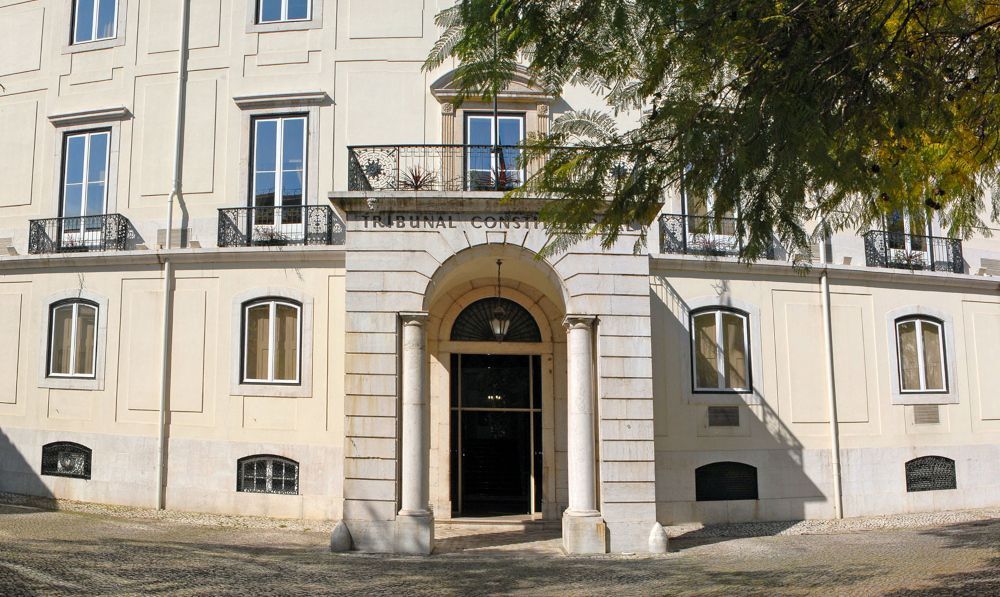Service Contracts with Portuguese Companies: Legal and Tax Implications for Foreign Businesses

Margarida Tempera | Lawyer

António Pratas Nunes | Lawyer
Foreign companies engaging service providers in Portugal must distinguish clearly between independent contractors and employees. Under Portuguese law, truly independent service providers fall under the general Civil Code regime, while employees are protected by the Labour Code.
While the Labour Code defines an employment contract as one in which “a natural person undertakes, through retribution, to provide their activity to another person, within the organisation and under their authority”, the Civil Code (Código Civil) defines service provision contract as “an agreement whereby one party commits to provide to the other a certain result of their intellectual or manual work, with or without remuneration”. In short, a Portuguese labour contract involves personal subordination and integration into the employer’s business, whereas a civil services contract is about delivering specified results.
This said, foreign businesses should ensure that their agreements with Portuguese parties reflect these distinctions, since mischaracterising an actual employment relationship as an independent service contract may trigger serious legal consequences.
In practice, the key test is one of subordination and control. Portuguese authorities look beyond the contract label to the true nature of the relationship. If the service provider must follow detailed instructions, work set hours, use the company’s facilities, and is economically dependent on the client, the arrangement may be deemed a disguised employment. As noted in Portuguese case law and guidance, “the existence of subordination…is decisive in characterising an employment relationship”. The Labour Code definition emphasises that employment is a relationship under “the authority” of the employer, and so foreigners must avoid any real control over how a contractor organises their work. For example, requiring a contractor to attend a fixed schedule in the client’s office or use the client’s equipment would suggest an employment relationship. The written contract should therefore emphasise the independence of the service provider (e.g. stating that they control their own time and methods and avoid clauses such as exclusivity or fixed working hours) that mimic employment. In all cases, the substance of the working arrangement is decisive: Portuguese courts will requalify an “independent contractor” agreement into an employment contract if the provider works under direction and integration into the business.
Portuguese law even contains a statutory presumption of employment under the Labour Code, providing that if certain characteristics are present, the relationship is presumed to be one of employment. If a person performs the services at a location determined by the beneficiary or using the beneficiary’s equipment, among other factors, an employment contract is legally presumed. In practice, if two or more of these factors coexist (for example, working at the client’s premises with client-owned tools under a fixed schedule), Portuguese authorities will treat the service provider as an employee unless the employer proves otherwise. The burden of proof thus falls on the foreign company to demonstrate true independence. This presumption underscores the risk of simple misclassification- employers cannot rely on a self-styled “service contract” to avoid the protections of the Labour Code.
The consequences of misclassification can be severe. If a court or labour inspection finds that a contractor was effectively an employee, the foreign company may incur extensive retroactive liabilities. Under Portuguese labour law, employees enjoy numerous benefits and protections that cannot be contracted away. These include statutory paid holiday (at least 22 working days per year), a guaranteed holiday bonus (usually a 14th-month salary) and Christmas bonus (a 13th-month salary), paid sick leave, maternity/paternity leave, minimum wage guarantees and notice and severance rights on termination. An employer who mislabels an employee as a contractor must typically pay all owed wages, holiday pay, and Christmas allowances as if the person had been an employee from the start, as in the event of suspected misclassification, the Working Conditions Authority (Autoridade para as Condições do Trabalho (ACT)) may intervene and initiate an inspection. Portuguese law even imposes heavy fines and penalties on companies that under-declare payroll by using false receipts. Social security contributions must be paid retroactively on all such payments (since the company would have had to withhold and pay contributions for an employee), and the company may face administrative sanctions. In short, the company becomes responsible for all statutory credits of the worker. As one practical guide notes, requalification can lead to “retroactive employment liabilities, including payment of holiday and Christmas allowances, severance rights, social security contributions, interest and administrative penalties”. These obligations, along with mandatory employment benefits, make the misclassification of an employee as a contractor a costly mistake in Portugal.
It is important to note that the Portuguese Labour Code also recognises a special category of economically dependent workers, defining them as a self-employed person who renders most of their services to one beneficiary and entitling them to certain protections similar to employees. Such dependent contractors may organise collectively and may even fall under collective bargaining regimes applicable to employees in the same sector, as long as they prove economic dependency. Thus, even a “sole trader” providing services to a single Portuguese firm may gain partial labour-law status if they lack alternative customers, and the client should be aware of this when dealing with long-term service contracts.
Given the risks of misclassification, foreign businesses should carefully structure their service contracts. The contract should explicitly state that the parties intend an independent contracting relationship and incorporate various clauses to demonstrate autonomy. For instance, it is advisable to emphasise the contractor’s freedom over the organisation of their own work, specifying that they set their own hours and methods and are not supervised like an employee. Contracts should avoid clauses requiring exclusivity (so the contractor can work for others) and should make clear that the provider supplies and uses their own tools or equipment. Remuneration provisions should be based on deliverables or services rendered (for example, payment per project or per invoice) rather than a fixed monthly salary. It is also wise to include express statements that no employment relationship is intended, although such “disclaimer” clauses are not conclusive on their own. Other standard terms as scope of work, confidentiality, intellectual property rights and limits on subcontracting, should also be covered. The contract should clearly allocate responsibilities for taxes and compliance (noting, for example, that the contractor is responsible for their own tax and social contributions as a self-employed person). Finally, termination provisions are important: either provide for notice periods or termination triggers or explicitly allow either party to end the contract on reasonable notice, to avoid uncertainty and mirror the flexibility of civil contracts. Well-drafted service agreements, tailored to Portuguese law, help to demonstrate that the relationship is genuinely independent and not subject to the strictures of employment law.
The tax and social-security implications should not be overlooked, although these are secondary to the labour issues. In principle, a truly independent contractor must handle their own tax affairs in Portugal. A Portuguese service provider will invoice the foreign client and pay personal income tax under Category B (trade and professional income). If the foreign business has no Portuguese presence (no permanent establishment), generally there is no Portuguese income-tax withholding obligation – the contractor declares and pays tax themselves. (By contrast, a Portuguese client paying for such services would normally withhold 23% on professional fees, unless a lower rate applies.) Value-added tax (VAT) also follows EU rules: services provided to a foreign business are usually taxable where the client is established, so Portuguese VAT is not charged – the foreign company self-accounts under the reverse-charge mechanism. The Portuguese contractor must issue a proper invoice referencing the reverse charge and comply with local invoicing rules. Foreign businesses should be mindful of any tax treaty provisions: although Portuguese residents pay tax on worldwide income, relief under double-taxation treaties may apply if cross-border withholding or taxation arises. In practice, the key tax concern for foreign companies is ensuring invoices from Portuguese providers are valid and understanding whether any withholding or VAT rules apply to payments (with guidance from the contractor on their registration and status).
Ultimately, the interplay of Portuguese labour and tax law means that foreign companies must navigate these relationships carefully. A foreign company contracting with a Portuguese individual or entity should treat the arrangement first and foremost as commercial (governed by contract and the Civil Code), but should structure it so that no element of employment sneaks in. This involves respecting autonomy, avoiding control, and documenting the arrangement clearly.
In case of doubt, foreign companies would be well advised to seek Portuguese legal advice. By explicitly defining the contractor’s independence, respecting Portuguese labour protections, and complying with invoicing and withholding requirements, a foreign business can reap the benefits of hiring Portuguese talent (or firms) without inadvertently creating an employment relationship.










